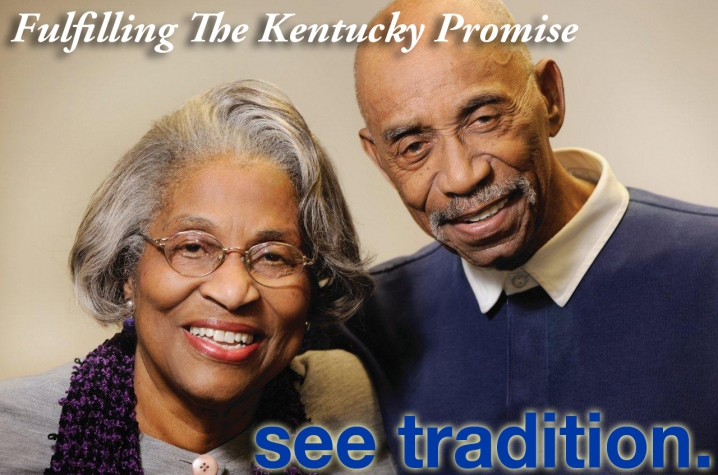A Tradition of Hope

"The reward I want is a cure for this disease. That is all the incentive I need."
— University of Kentucky Sanders-Brown Center on Aging research volunteer
LEXINGTON, Ky. (Oct. 12, 2012) — For more than 20 years, volunteers have left a legacy by giving of themselves in the fight against Alzheimer's disease.
Since 1989, more than 1,000 older Kentuckians have made the decision to give of their time, resources and bodies to support the fight against the devastating condition. These men and women have enrolled as participants in the University of Kentucky Sanders-Brown Healthy Brain Aging Volunteers research cohort. They agree to regular cognitive testing, and to donate their brains to research upon their death.
To date, 273 brains of deceased research volunteers have been autopsied by the UK Sanders-Brown Center on Aging. Combined with years of longitudinal data from cognitive testing performed on each person, the information gleaned from these brain donations has resulted in Sanders-Brown having one of the best brain banks in the country for the study of Alzheimer's disease. In addition, the research has led to numerous published articles by Sanders-Brown faculty.
In a recent paper published in the journal Current Alzheimer Research, a group of UK Sanders-Brown researchers led by Frederick A. Schmitt profiled the characteristics of this exceptional cohort of dedicated research volunteers. Other authors on the paper include: Peter T. Nelson, Erin Abner, Stephen Scheff, Gregory A. Jicha, Charles Smith, Gregory Cooper, Marta Mendiondo, Deborah D. Danner, Linda J. Van-Eldik, Allison Caban-Holt, Mark A. Lovell and Richard J. Kryscio.
Schmitt et al highlight the importance of the research volunteers' dedication over many years. Of 1,030 people enrolled in the study as of the time of the paper's publication, 552 of the participants have been actively followed for multiple years, a high retention rate. Of 363 participants who have become deceased during enrollment, 273 have been successfully autopsied.
A 2009 survey of research cohort members revealed that participants' reasons for enrolling in the Sanders-Brown study are typically selfless. Eighty percent of participants surveyed answered that gifts and incentives (common in some research programs) were not necessary to keep them enrolled in the study.
"Save the money for research," said one volunteer, who remains unnamed for privacy reasons. "Progress in the area is our best reward. Volunteering brings its own joy."
Volunteers do enjoy some benefits, like a regular newsletter from the Center with information on healthy aging and how to keep their brains active. They also have access to health fairs, town hall style meetings and regular neurological exams conducted by a UK Sanders-Brown physician.
But for the most part, participants in the study have their eye on the future, hoping to eradicate Alzheimer's disease for future generations.
"I do this for my children and my grandchildren," said another volunteer.
MEDIA CONTACT: Allison Elliott, allison.elliott@uky.edu




